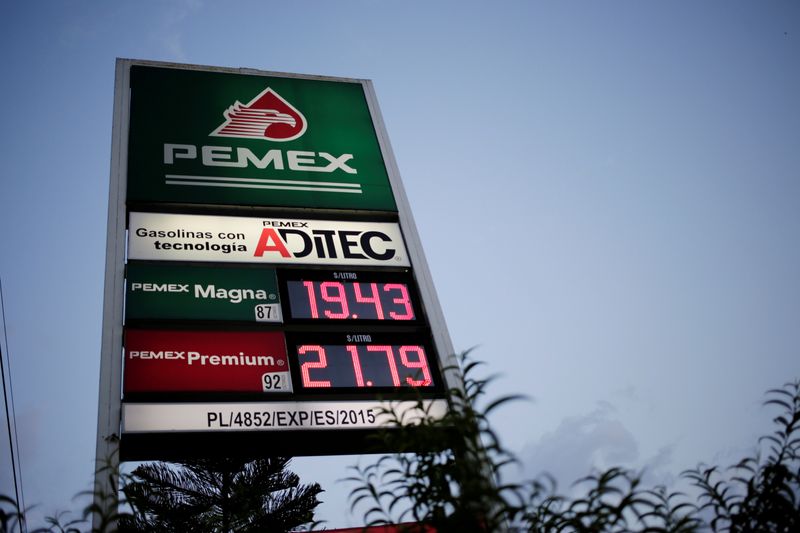By Marianna Parraga and Devika Krishna Kumar
MEXICO CITY/NEW YORK (Reuters) - Demand for refined products in Latin America is quickly drying up as the coronavirus pandemic worsens, leaving U.S. refiners without their primary export destination as the virus spreads.
The crisis has nearly shut down worldwide air travel and is destroying fuel demand, which could fall by 15% to 20% globally in coming months.
The virus had not hit Latin America with the same intensity as Europe or the United States, but it is increasingly spreading there, and a growing number of nations are imposing travel restrictions.
The region's largest importers in recent days began cutting orders of fuel cargoes, which are mostly executed on the volatile spot market, as consumption falls, according to sources at trading and refining firms.
Latin America's two largest fuel importers, Petroleos Mexicanos and Brazil's Petrobras (SA:PETR4), have reduced the number of cargoes of gasoline and diesel to be imported in the coming weeks, according to traders.
The United States exported 2.9 million barrels per day of fuel to Latin America and the Caribbean last year, according to the U.S. Energy Information Administration, making the region the largest buyer of American refined products, and a steady customer for U.S. refiners.
In Mexico, which bought 1.19 million bpd of fuel from the United States in 2019, retail demand contracted 15% in the last two weeks, according to its fuel sellers association, Onexpo, while prices began falling at gas stations.
U.S. fuel exports to Latin America have been affected by a "super lockdown," one refined products trader at a global merchant said. Another said exports have been hit as the "world is stopping."
"Most opportunistic purchases motivated by falling prices have disappeared as the largest importers in the region don't have large capacity to store gasoline or diesel," said another trader.
U.S. refiner Phillips 66 (N:PSX) on Tuesday said that some of its Latin American customers were asking if they could back out of purchases, which is one reason the company's refineries are working at reduced rates.
Mexico's largest importer, Pemex, had already cut fuel imports by 14% in January to 733,600 bpd, according to official data. The state firm's fuel imports from the United States have also declined at the expense of new entrants such as ExxonMobil (N:XOM), BP (L:BP) and Valero Energy (N:VLO), said Michael Upchurch, chief financial officer at U.S. railroad company Kansas City Southern (N:KSU), an active shipper of fuels to Mexico.
In Brazil, the largest Latin American buyer of diesel, domestic fuel sales recently fell by an average of 50% in cities with more than 300,000 inhabitants, a union representing more than 40,000 gas stations said on Wednesday. Local Brazilian authorities are trying to restrict travel to combat the virus, even as President Jair Bolsonaro opposed shutdowns.
Venezuela, a regular importer of diluent naphtha, gasoline and diesel, has reduced purchases this month to about half, mainly due to U.S. sanctions limiting the suppliers that can work with state-run PDVSA, but also because of plummeting demand following gas station closures.
In Colombia, state-controlled Ecopetrol (CN:ECO) noticed a fall in domestic fuel demand, which already motivated processing cuts at its Cartagena and Barrancabermeja refineries.

Pemex and PDVSA did not respond to requests for comment. Petrobras declined to comment.
